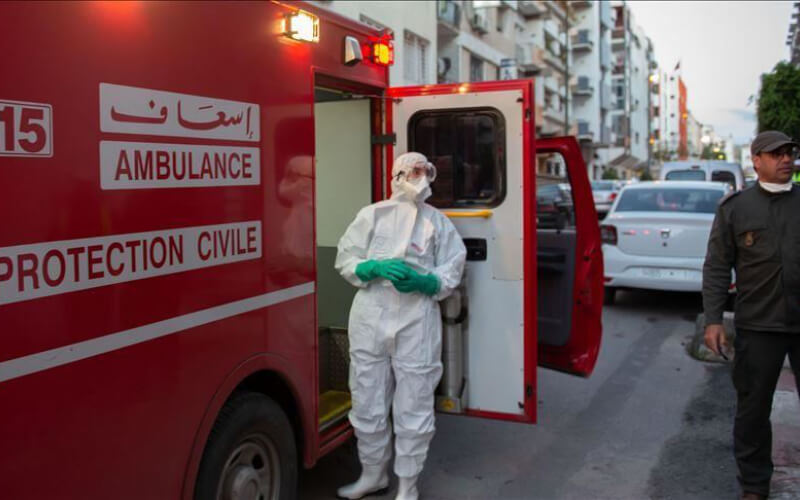Morocco Braces for Potential Third COVID-19 Wave as Cases Rise

Despite many precautions, epidemiologists and other health experts say that Morocco is at the beginning of a third wave of Coronavirus infections, and that it could be more deadly due to the British variant. At the digital scientific conference organized by the Dr. Abdelkrim Al-Khatib Foundation for Thought and Studies, many experts called on Moroccans to be vigilant and continue to respect preventive measures.
Among the eminent professors who led this digital conference, there is Mohamed Amine Berraho, professor of epidemiology at the Faculty of Medicine and Pharmacy of Fez and member of the technical and scientific committee. For him, Morocco must prepare to face the worst if nothing is done. "For six weeks, the reproduction rate remained below 1. But for the past three weeks, it has stabilized above 1 to reach 1.1. This means that the epidemiological situation is dynamic. The number of cases is accelerating. We are at the beginning of a third wave," reports Medias24.
For his part, Ahmed Rhassane El Adib, professor of anesthesiology and resuscitation at the Mohammed VI University Hospital in Marrakech, indicated that the data available to the health services show that there is a resumption of the contamination curve. "If we continue at the same pace, it only takes four weeks to reach an average of 7,000 to 10,000 cases per week. In six weeks, we will reach 12,000 to 15,000 cases per week. So we could reach an average of 2,000 cases per day, including 100 to 200 serious cases per day. In ten days, we will have saturated all available intensive care beds," warns Prof. Berraho.
According to the experts, the speed with which the British variant is gaining ground is worrying. "In Morocco, we started with a single diagnosed case, to move on to about twenty, then to 70 cases. And according to the latest data, there are more than 115 diagnosed cases in 7 regions of Morocco," analyzes Prof. Berraho. He stresses that "in four to six weeks, the variant will become the predominant virus circulating in Morocco. It will represent between 50 and 60% of the recorded cases."
Among the solutions proposed to defuse the situation looming on the horizon, the speakers proposed to work on control and surveillance measures. This means carrying out more screening tests, observing more rigor in compliance with preventive measures. Continuing the vaccination campaign is essential. "The citizen, wherever he is, must know where to go if he falls ill. The care pathway is not clear for citizens. There needs to be local participation and involvement of all private, public, even non-health sectors to make diagnosis and care faster," proposes Ahmed Rhassane El Adib.
Related Articles
-

Illegal Beach Sand Mining Near Tangier Sparks Environmental and Economic Outcry
4 September 2025
-

Surveillance Footage Exposes Tourist Robbery Ring in Tangier Court Drama
4 September 2025
-

Rif Protest Icon’s Father Dies: Ahmed Zefzafi’s Passing Reignites Hirak Movement Debate
3 September 2025
-

Gulf Tourists and Moroccan Women Arrested in Marrakech Prostitution Sting
3 September 2025
-

Groom’s Secret Past Exposed: First Wife Crashes Moroccan Wedding, Halting Ceremony
3 September 2025